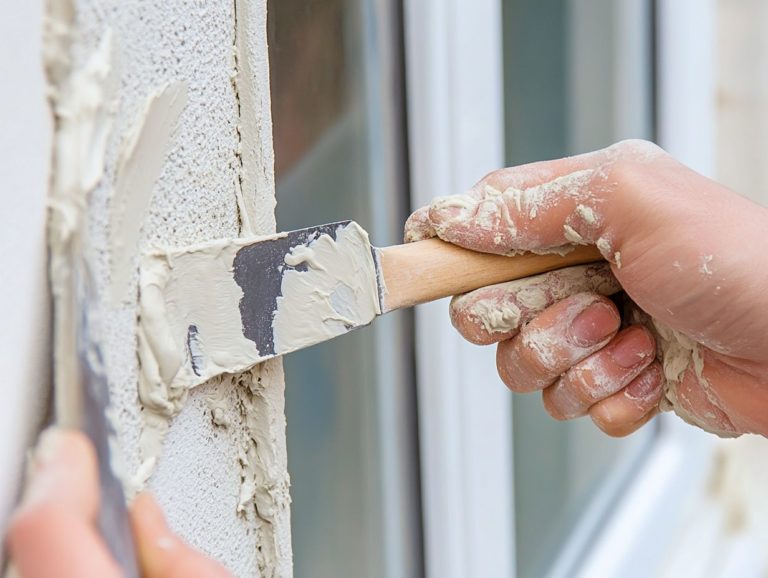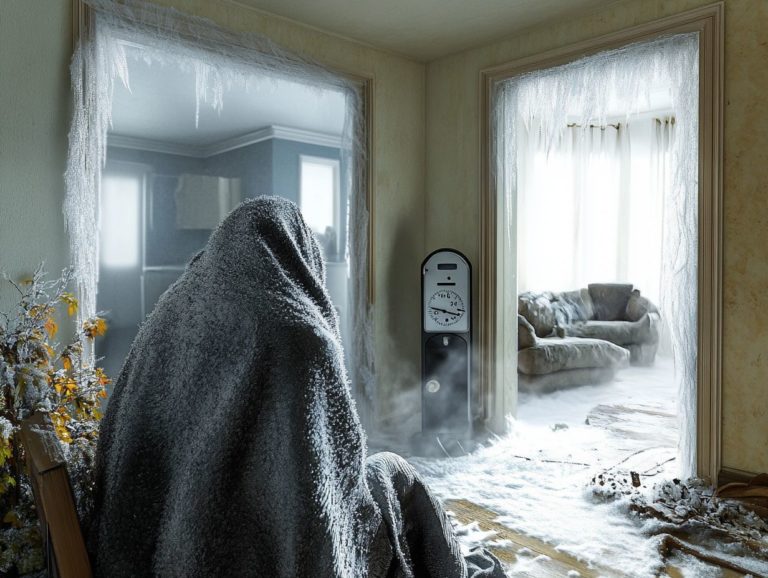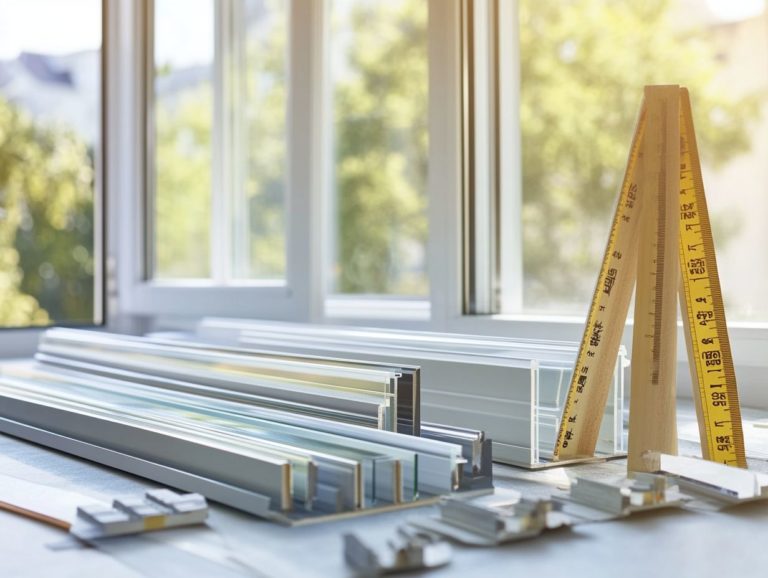What is the Importance of Home Insulation?
Home insulation is vital for creating a comfortable living space and can lead to impressive energy savings.
Understanding the basics what insulation is, the various types available, and the benefits it offers is crucial for every homeowner. This article explores the significance of proper insulation, emphasizing its contributions to energy efficiency, comfort, and overall health.
You’ll discover key factors to consider when insulating your home, the best materials to choose, and the necessity of professional installation and maintenance. By the end, you ll be eager to turn your home into a cozy, energy-efficient haven!
Contents
Key Takeaways:

- Home insulation is essential for energy efficiency and cost savings, as it helps keep the temperature regulated and reduces the need for constant heating and cooling.
- Insulation provides comfort and health benefits by improving indoor air quality and reducing noise pollution.
- Consider factors such as climate, location, and types of insulation materials when choosing the right insulation for your home.
Understanding Home Insulation Made Easy
Home insulation plays a crucial role in energy efficiency, directly influencing both your comfort and cost savings.
By utilizing a range of materials like fiberglass, cellulose, and spray foam you can significantly lower energy consumption while maintaining ideal indoor temperatures.
In regions like Florida, where effective heating and cooling are essential, knowing the different types of insulation and their installation techniques is critical for ensuring structural integrity and adherence to building codes.
What is Home Insulation?
Home insulation encompasses the materials and techniques designed to minimize heat transfer between the interior and exterior of your building, ultimately enhancing energy efficiency and thermal comfort.
By creating a barrier that reduces heat flow, insulation allows you to maintain a stable indoor temperature, which means you ll rely less on heating or cooling systems.
You ll find various insulation materials at your disposal, such as fiberglass, cellulose, and spray foam, each offering different levels of thermal resistance, known as the measure of insulation’s ability to resist heat flow.
For instance, fiberglass batts are commonly installed in walls and attics. In contrast, spray foam, with its exceptional sealing capabilities, expands to fill gaps and cracks, ensuring a snug fit.
By enhancing air sealing and overall thermal performance, these materials not only create a more comfortable living space but also lead to significant energy savings over time.
Types of Home Insulation
Several types of home insulation are available, including fiberglass, cellulose, and spray foam, each offering distinct advantages and performance traits.
Fiberglass insulation stands out for its affordability and effectiveness in retaining heat, making it a favored choice for attics and walls.
On the eco-conscious side, cellulose, derived from recycled paper products, is an environmentally friendly option that boasts exceptional soundproofing abilities and a high thermal resistance for superior energy efficiency.
Spray foam insulation is ideal for creating an airtight seal, especially effective in irregular spaces and basements.
Each insulation type varies not only in material but also in installation complexity and long-term durability. Assessing your specific needs is crucial to selecting the right insulation that maximizes energy savings and enhances comfort.
The Importance of Home Insulation
The significance of home insulation cannot be overstated. It plays a vital role in boosting energy efficiency, reducing energy consumption, and ultimately saving you substantial amounts on your energy bills.
The advantages of insulation go beyond mere cost savings; they create a more comfortable living environment and help minimize your heating and cooling demands throughout the year.
Considering an insulation assessment for your home can lead to better energy efficiency and increased comfort for you and your family.
Energy Efficiency and Cost Savings
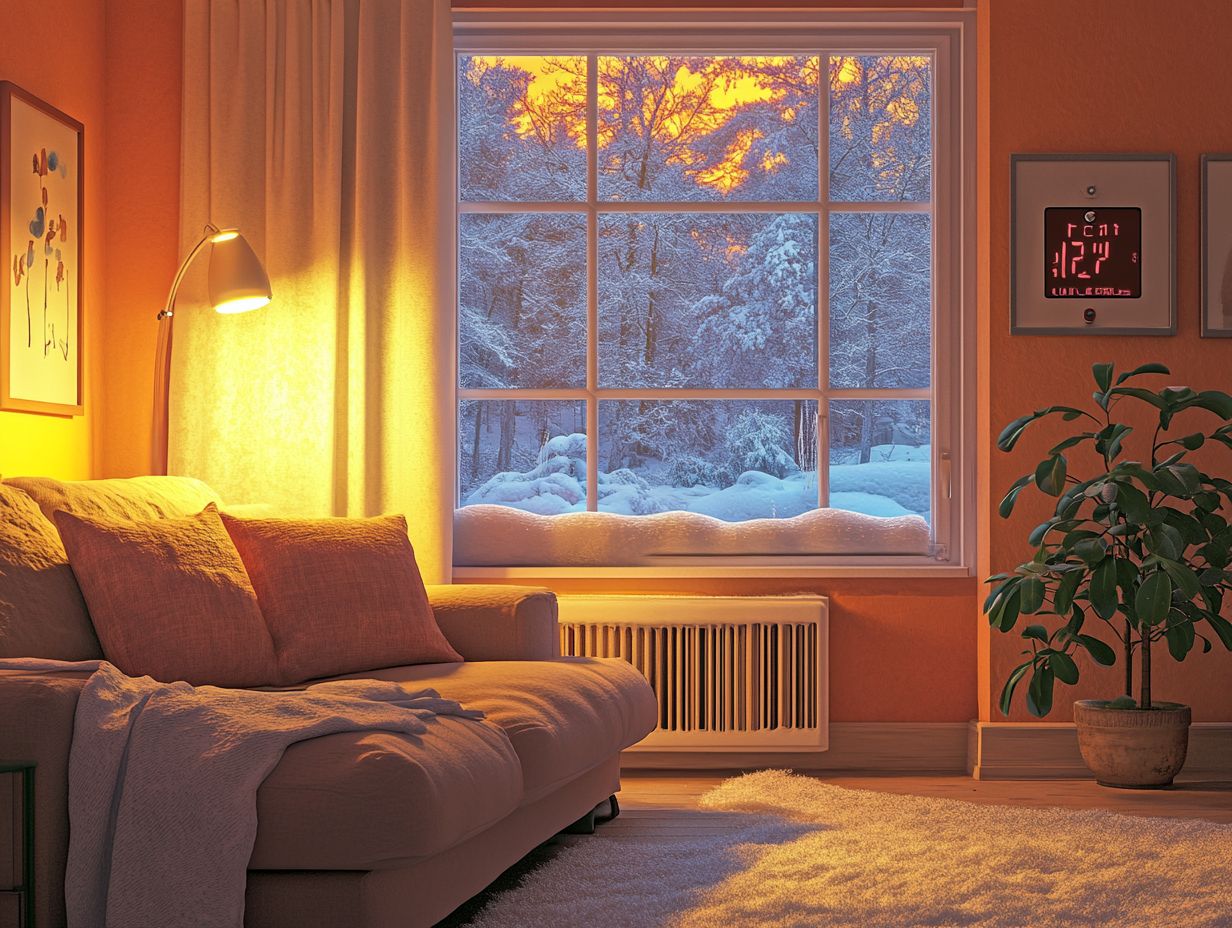
Investing in high-quality home insulation can lead to remarkable energy efficiency gains and substantial savings on your energy bills over time.
Consider this: the U.S. Department of Energy estimates that nearly 30% of a home’s energy is lost due to inadequate insulation. By ensuring your home is properly insulated, you can potentially cut heating and cooling costs by up to 20%, translating to hundreds of dollars saved each year.
Homes with expertly installed insulation maintain a more consistent indoor temperature, which reduces dependence on heating and air conditioning systems, resulting in lower overall energy consumption.
These enhancements not only lighten your financial load but also foster a more sustainable environment by reducing energy use across the board.
Comfort and Health Benefits
Proper home insulation significantly improves your comfort by maintaining stable indoor temperatures while addressing issues like noise pollution and moisture, which can lead to mold growth.
When you effectively seal gaps and ensure appropriate insulation levels, you ll notice a remarkable reduction in external noises, creating a more tranquil living environment.
Quality insulation acts as a barrier against excessive moisture, preventing condensation that often breeds harmful mold spores. This is vital for your respiratory health, as poor air quality can worsen allergies and other health concerns.
With reduced drafts, you can enjoy energy savings and promote a healthier lifestyle while being kinder to the environment.
Factors to Consider for Home Insulation
When contemplating home insulation, consider key factors like your local climate, the most suitable insulation materials, and any potential moisture issues. These elements are crucial for achieving optimal comfort and performance in your home.
Climate and Location
Climate and location significantly influence the insulation needs of your home, impacting both energy efficiency and the environmental footprint of your insulation projects.
Different regions require tailored insulation strategies to manage heat retention and loss effectively. For example, if you’re in a warmer climate, reflective materials can help keep your home cool. Conversely, colder areas necessitate robust insulation that effectively retains heat.
Selecting the right materials boosts energy efficiency and reduces your ecological footprint since some products are more sustainable than others.
By understanding these nuances, you can make informed choices that enhance your comfort and support environmental stewardship, ultimately contributing to a healthier planet.
Types of Insulation Materials
Various insulation materials, such as fiberglass, cellulose insulation, and Bradford glasswool, offer features and benefits tailored to meet your specific insulation needs. Here are some highlights:
- Fiberglass: Excellent thermal performance and fire resistance, ideal for attics and walls.
- Cellulose Insulation: Made from recycled materials, great for eco-conscious homeowners.
- Bradford Glasswool: Celebrated for its soundproofing capabilities, perfect for tranquil spaces.
By understanding these materials’ distinct characteristics, you can make informed decisions that enhance energy efficiency and comfort while perfectly aligning with your individual needs.
Proper Installation and Maintenance
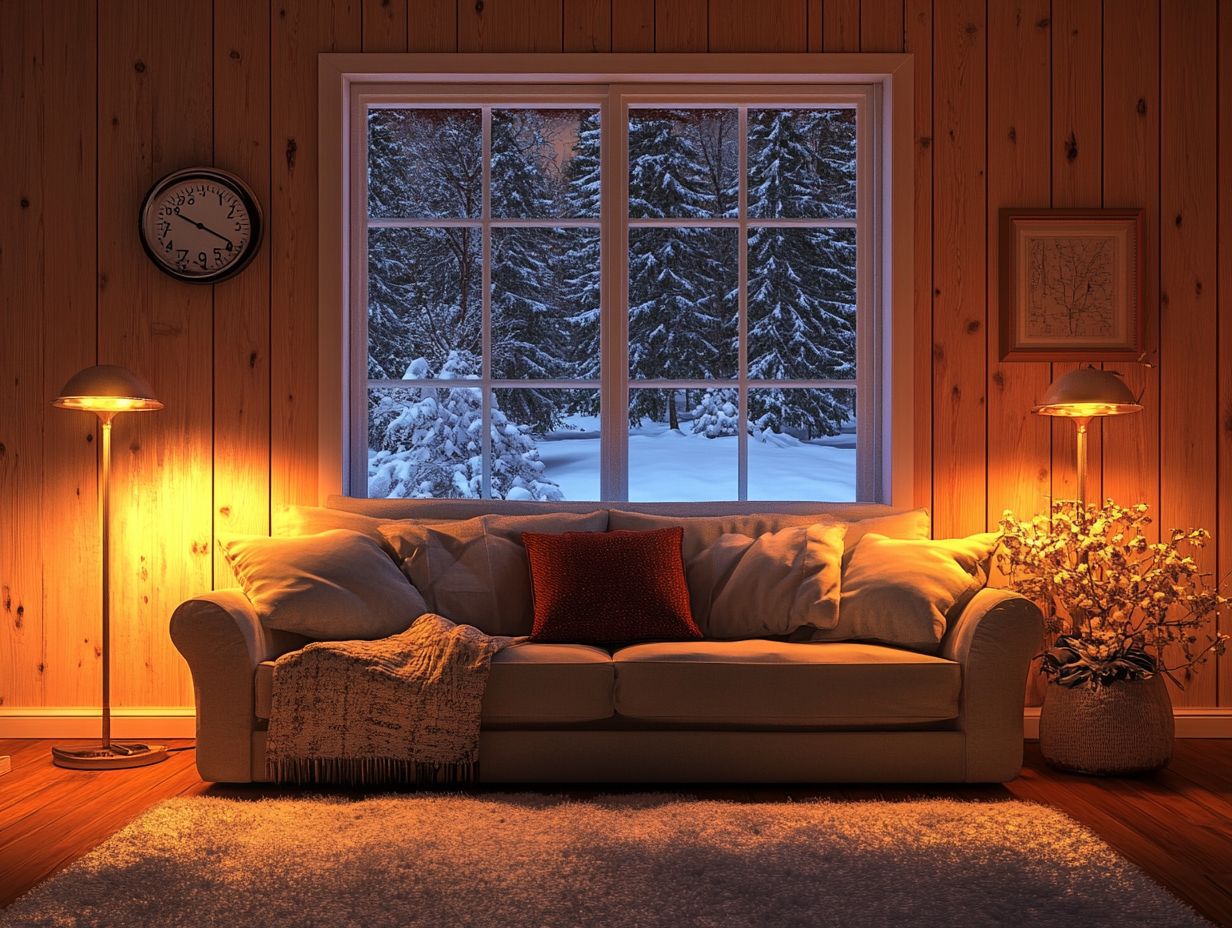
Ensuring proper installation and regular maintenance of insulation systems is crucial for peak insulation performance and extending the lifespan of your upgrades.
Pay attention to these details, as they significantly influence both efficiency and longevity.
Ready to reduce your energy bills? Start exploring insulation options today!
Importance of Professional Installation
Professional installation of insulation is essential for ensuring compliance with building codes and optimizing insulation performance. This ultimately enhances energy efficiency.
When experts install insulation, you can trust that local regulations are followed. This minimizes the risk of costly fines and future problems.
These professional installers excel at selecting the most appropriate materials and techniques. This greatly enhances the overall effectiveness of your insulation.
Proper installation can make your insulation last longer, which is a smart move for your home’s energy efficiency. This not only helps maintain a comfortable indoor climate but also lowers your energy bills over time, leading to substantial savings.
Maintenance Tips for Longevity
Regular maintenance plays a crucial role in extending the lifespan and performance of insulation. It allows you to deal with moisture issues and mold before they escalate.
Make it a priority to inspect your insulation regularly, especially in attics and basements where humidity levels tend to rise. Look for water leaks, ensure proper ventilation, and maintain indoor humidity levels between 30% and 50% to reduce moisture-related issues.
Regularly inspect and clean your gutters to prevent water from pooling near your foundation.
By staying proactive and implementing these practical measures, you can ensure your insulation remains effective. This saves you from costly repairs later while promoting a healthier living environment.
Frequently Asked Questions
What is the Importance of Home Insulation?
Home insulation is important because it helps regulate the temperature inside your home, making it more comfortable and energy-efficient. Understanding why insulation is key for home comfort can further enhance your living space.
Why is it important to have proper home insulation?

Proper home insulation is important because it can help reduce your energy bills and carbon footprint by preventing heat loss or gain.
What are the benefits of home insulation?
Aside from energy efficiency, home insulation can also improve indoor air quality, reduce noise levels, and increase the overall value of your home.
How does home insulation save money?
Home insulation can save you money by reducing the need for heating and cooling. This results in lower energy bills and can prevent costly damages caused by temperature fluctuations.
What are the different types of home insulation?
The most common types of home insulation are fiberglass, cellulose, spray foam, and rigid foam. Each type has its advantages and is suitable for different areas in your home.
Can I install home insulation myself?
While some types of home insulation can be installed by homeowners, it is recommended to hire a professional for optimal results. A professional can also help determine the best type of insulation for your home.

